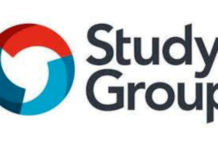New Delhi, September 15, 2020: The New Education Policy (NEP) 2020 was launched on July 29, 2020 after the Union cabinet approved it. The NEP replaces the 34-year old policy of 1986 and aims to pave way for transformational reforms in school and higher education systems in the country.
The NEP aims to overhaul the country’s education system and some of its biggest proposed changes are:
- Changes to school year grouping from present 10 + 2
- Mother tongue as medium of instruction
- Single regulator
- Focus on interdisciplinary education
Education Promotion Society of India (EPSI) organised the E-Conference on “National Education Policy 2020: Impact on PGDM Education” on 29 August, 2020. The conference deliberated specifically on “how does NEP 2020 Impact the Management Education in general and 500+ PGDM B-schools in particular? What challenges and opportunities does NEP 2020 present for B-schools? How should they plan their future roadmap to align and benefit from this landmark policy?”. The other prominent speakers attending this event were Dr. Bhimaraya Metri, Chairman, Board of Management Studies, AICTE, Dr. Debashis Chatterjee, Director, IIM Kozhikode, Dr. J Philip, Founder & Chairman, XIME Bangalore, Dr. Madhu Veeraraghavan, Director, TAPMI, and Mr. Shreevats Jaipuria, Vice Chairman, Jaipuria Institute of Management, etc. Chairman of AICTE, Dr Anil D. Sahasrabudhe was a keynote speaker at the event.
Dr Anil D. Sahasrabudhe, Chairman, AICTE touched upon various aspects of National Education Policy, specifically management education and autonomy related issues. He highlighted the importance of NEP 2020 by bringing up the fact that none other than the Prime Minister of the country took time to announce the policy, speaking on it for 45 minutes. He mentioned various factors that need focus in order to improve programme quality at PGDM offering institutions, including quality of institutes and curriculum, exposure received by students, research focus, and quality of faculty.
Dr. Jitendra K. Das, Director, FORE School of Management, New Delhi was invited as one of the eminent speakers at the conference, alongside several policy makers, educationists, and thought leaders. Dr. Das spoke on the topic of ‘Development of Road-map for autonomy and becoming a degree granting institution’ and its implementation while touching upon the deliverable and autonomy as desired by the Higher Education Institutions.
Dr. Das started his remarks with a revisit to the background of autonomy in management education institutions. He cited the example of the IIMs in the 1960s, which were autonomous institutions teaching management. They were not allowed to grant degrees since they were not granted university status but rather were created as Societies granting PGDM, considered equivalent to MBA. Dr Das took the participants through why they were not allowed to grant degrees at par with IITs and why they perhaps chose not be granted university status. The reason behind this, according to Dr Das, was that the IIMs preferred to have flexibility and speed of decision making, and hence autonomy was more important than the ability to grant degrees.
According to Dr. Das, NEP 2020 is like a breath of fresh air and everyone should look at it positively. He however cautioned that the proof of the pudding is in the eating since for NEP 2020 is a strategy roadmap or policy document and its implementation will be key since policy is one thing, and making it happen is another. He mentioned that Indian regulators and management education institutions can draw lessons from the USA and UK the big democracies, China which is not a democracy and has made huge strides in higher education, and Singapore with its small size and lessons in policy execution.
Dr. Das mentioned that fundamentally higher education is driven by choice of the student v/s at the 5+3+3 stage. According to him, even undergraduate level to an extent is less driven by student choice but PGDM reflects student choice to a greater extent driven by specific outcomes. Due to this reason, it is important that institutions work solely with the purpose of fulfilling aspirations of students. He then delved into the fact that India has over 3,000 PGDM institutions and the quality varies, and that the NEP 2020 is timely in its intent of improving quality.
Dr. Das then went on to contrast the existing regulator role with what would be ideal in NEP 2020’s implementation. He mentioned that currently institutions are busy meeting requirements of regulators, not stakeholders like faculty, students, and recruiters. True autonomy is required so that the focus can shift where it should be – the role of regulator should be clearly defined in order to preserve autonomy. Policing role should stop; facilitator role should be the focus. Day to day and routine matters should not concern the regulator, in the view of Dr Das. This kind of autonomy where institutes are free to define admissions process, programme offering, fees, faculty selection, etc is desirable to perform and deliver. The important matter of autonomy in fees was highlighted by Dr. Das wherein he stated that quality has price associated with it; leave it to the institutes and students to decide the level as per the quality.
Finally, Dr. Das stressed on the need for a proper ecosystem for delivery of higher education, which includes both infrastructure and more research rigour.
This was an enlightening and timely event that brought focus on post graduate management education in light of the NEP 2020. The discussion will prove useful to educationists and students alike.
Corporate Comm India (CCI Newswire)































